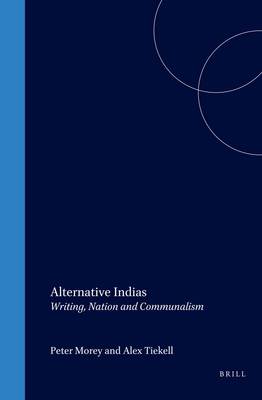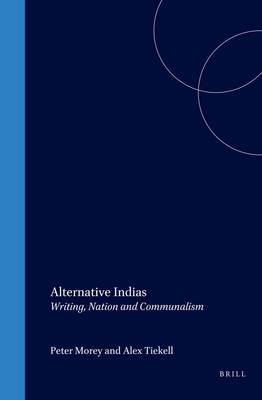
- Afhalen na 1 uur in een winkel met voorraad
- Gratis thuislevering in België vanaf € 30
- Ruim aanbod met 7 miljoen producten
- Afhalen na 1 uur in een winkel met voorraad
- Gratis thuislevering in België vanaf € 30
- Ruim aanbod met 7 miljoen producten
Zoeken
€ 145,45
+ 290 punten
Omschrijving
The debate over whether religious or secular identities provide the most viable model for a wider national identity has been a continuous feature of Indian politics from the late nineteenth century to the present day. Moreover, in the last thirty years the increasingly communal articulation of popular politics and the gradual rise of a constellation of Hindu nationalist parties headed by the BJP has increased the urgency of this debate. While Indian writing in English has fostered a long tradition of political dissent, and has repeatedly questioned ethnocentric, culturally exclusive forms of political identification, few critics have considered how this literature engages directly with communalism, or charted the literary-political response to key events such as the Babri Masjid / Ramjanmabhumi affair and the recent growth of popular forms of Hindu nationalism.
The essays collected in Alternative Indias break new ground in studies of Indian literature and film by discussing how key authors offer contending, 'alternative' visions of India and how poetry, fiction and film can revise both the communal and secular versions of national belonging that define current debates about 'Indianness'. Including contributions from international scholars distinguished in the field of South Asian literary studies, and featuring an informative introduction charting the parallel developments of writing, the nation and communal consciousness, Alternative Indias offers a fresh perspective on the connections and discontinuities between culture and politics in the world's biggest democracy.
The essays collected in Alternative Indias break new ground in studies of Indian literature and film by discussing how key authors offer contending, 'alternative' visions of India and how poetry, fiction and film can revise both the communal and secular versions of national belonging that define current debates about 'Indianness'. Including contributions from international scholars distinguished in the field of South Asian literary studies, and featuring an informative introduction charting the parallel developments of writing, the nation and communal consciousness, Alternative Indias offers a fresh perspective on the connections and discontinuities between culture and politics in the world's biggest democracy.
Specificaties
Betrokkenen
- Uitgeverij:
Inhoud
- Aantal bladzijden:
- 276
- Taal:
- Engels
- Reeks:
- Reeksnummer:
- nr. 82
Eigenschappen
- Productcode (EAN):
- 9789042019270
- Verschijningsdatum:
- 1/01/2005
- Uitvoering:
- Hardcover
- Formaat:
- Genaaid
- Afmetingen:
- 155 mm x 230 mm
- Gewicht:
- 598 g

Alleen bij Standaard Boekhandel
+ 290 punten op je klantenkaart van Standaard Boekhandel
Beoordelingen
We publiceren alleen reviews die voldoen aan de voorwaarden voor reviews. Bekijk onze voorwaarden voor reviews.







